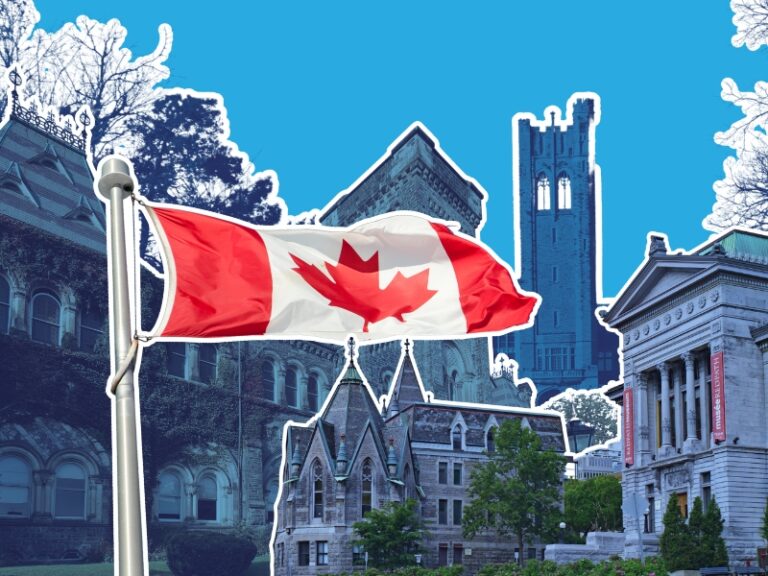Contact Us
[email protected]
Top MBA Destinations 2026: Best Countries to Study

Discover the best countries for MBA education in 2026, exploring global business schools, career opportunities, affordability, and future leadership pathways.
Pursuing an MBA abroad remains one of the most impactful decisions for aspiring leaders, with the United States, United Kingdom, Canada, Australia, Singapore, and Europe standing out as top choices. Each region offers unique strengths—whether in global recognition, affordability, program structure, or career opportunities—making them the best countries for MBA aspirants in 2026.
United States: The Global Powerhouse for MBA Leadership
The United States continues to dominate as the most sought-after destination, with over half of global MBA aspirants choosing American schools. While its popularity dipped in recent years due to visa challenges and economic uncertainties, demand is rebounding, supported by a projected 3.2% growth in the MBA market through 2030.
Top-ranked institutions such as Stanford Graduate School of Business, Wharton, and Harvard Business School remain global leaders. They emphasize leadership development, experiential learning, and innovative teaching methods like Harvard’s case study approach and Stanford’s Leadership Labs.
The U.S. MBA job market is competitive yet rewarding. Between 2023 and 2024, MBA job postings increased by 35.6%, with major employers like McKinsey, EY, and Goldman Sachs actively recruiting. Average salaries for top U.S. MBA graduates range from INR 7.1 million to INR 16.8 million annually.
For international students, Optional Practical Training (OPT) provides up to 12–24 months of post-graduation work authorization, with strong prospects in finance, consulting, and technology. Despite fluctuations in hiring, U.S. MBAs remain among the most lucrative globally.
United Kingdom: A Legacy of Business Excellence
The U.K. ranks as the second most popular MBA destination, with world-class institutions such as London Business School, Oxford Saïd, and Cambridge Judge leading the charge. Its hallmark advantage is the one-year MBA format, offering students faster career re-entry and reduced tuition compared to U.S. programs.
MBA programs in the U.K. balance academic rigor with practical business exposure, often including consulting projects and real-world challenges. Institutions like Edinburgh and Warwick are recognized for their innovative hybrid models and strong international networks.
International students benefit from the Graduate Route visa, which allows up to two years of post-study work, making the U.K. an attractive pathway for career advancement.
Career outcomes are robust: nearly 90% of U.K. MBA graduates secure employment within three months, with average starting salaries between £70,000 and £90,000. Sectors like consulting, finance, and technology dominate recruitment, with top employers including Amazon, BCG, and Goldman Sachs.
International students benefit from the Graduate Route visa, which allows up to two years of post-study work, making the U.K. an attractive pathway for career advancement.
Canada: Innovation and Inclusivity in Business Education
Canada has rapidly risen in popularity, known for affordable tuition, inclusivity, and strong post-study work opportunities. Canadian MBAs emphasize leadership, innovation, and global business skills, with top-ranked schools like Toronto Rotman, McGill Desautels, and Western Ivey leading the way.
Tuition costs are significantly lower than in the U.S. or U.K., averaging CAD 30,000–40,000 per year, though elite programs may be higher. Schools like the University of Saskatchewan and University of Manitoba offer budget-friendly options while maintaining strong career outcomes.
Canada’s Post-Graduation Work Permit (PGWP) is a major draw, allowing graduates up to three years of work authorization. With thriving industries in technology, healthcare, finance, and natural resources, Canada offers diverse employment pathways.
For Indian students, especially, Canada represents one of the best ROI countries for an MBA abroad, combining affordability with career stability.
Australia: A Strategic Gateway to Asia-Pacific Markets
Australia has become a strategic hub for students seeking access to Asia-Pacific markets alongside Western education standards. Four Australian schools—Melbourne Business School, UNSW AGSM, Sydney Business School, and UQ Business School—rank in the world’s top 100.
MBA graduates in Australia enjoy strong salaries, averaging AUD 105,000 annually, with high demand in consulting, finance, and business development. Employers such as Deloitte, Accenture, and National Australia Bank actively recruit MBA talent.
One of Australia’s biggest advantages is its generous post-study work visas, with up to six years available in regional areas under the Temporary Graduate Subclass 485 visa. This flexibility supports long-term career development and even pathways to permanent residency.
Paired with its multicultural environment and student-friendly lifestyle, Australia is increasingly attractive for MBA aspirants targeting both global and Asia-Pacific leadership roles.
Singapore: The Asian Business Hub for Future Leaders
Singapore has established itself as a leading Asian hub for business education, attracting global institutions and multinational employers. Its strategic location and strong connections with both Eastern and Western economies make it ideal for students targeting international careers.
Top schools include INSEAD Singapore, NUS Business School, and Nanyang Business School, all ranked among the global elite. Programs often focus on innovation, sustainability, and analytics, reflecting Singapore’s strengths in finance and technology.
While tuition costs range between INR 5.3 million and INR 10.5 million depending on the institution, the ROI is impressive. NUS MBA graduates, for instance, report an average 170% salary increase within three years of graduation.
Singapore’s strong employment ecosystem, bolstered by the presence of companies like Google, Microsoft, and Facebook, ensures excellent post-MBA opportunities in consulting, finance, and tech.
Europe: Affordable and Prestigious MBA Options
Europe offers some of the most affordable yet prestigious MBA programs worldwide, with over 35 schools ranked in the Financial Times top 100. Countries like France, Germany, Portugal, and Slovenia host highly respected institutions at significantly lower tuition fees than U.S. or U.K. programs.
Examples include the Nova School of Business (Lisbon, €39,500), Luiss Business School (Rome, €35,000), and Mannheim Business School (Germany, €45,000)—all offering globally recognized MBAs with strong employment outcomes.
Many European MBAs are one-year programs, reducing both costs and career interruptions. Schools such as IESEG (Paris) and Emlyon (Lyon) are also ranked highly for diversity, innovation, and global networking opportunities.
With 95% of Mannheim graduates employed within three months and competitive tuition averaging under €50,000, Europe continues to be a compelling option for internationally minded MBA candidates.
Conclusion: Choosing the Best Country for an MBA in 2026
The 2025-2026 MBA admissions season presents unique opportunities. While U.S. schools still face challenges in politics and hiring cycles, reduced competition could favor applicants. Meanwhile, alternatives in Canada, the U.K., Australia, Singapore, and Europe are growing in prestige, affordability, and career outcomes.
Ultimately, the best country for MBA education in 2026 depends on individual priorities—be it cost, program length, market access, or post-study work opportunities. What remains constant is that an MBA from any of these top regions equips students with leadership skills, global perspectives, and career mobility to thrive in today’s evolving business landscape.





